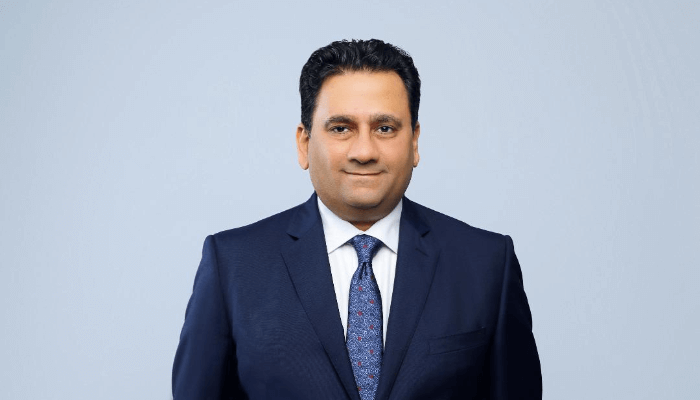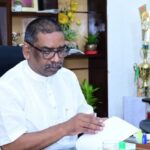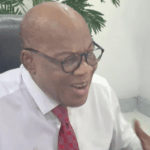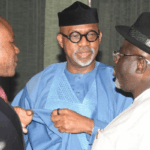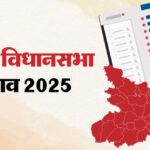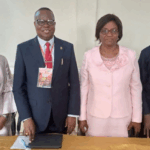Africa’s most populous black nation, Nigeria, still faces an infrastructure gap of over $3 trillion through 2030, highlighting both the scale of demand and the opportunity for continued development. The country possesses huge prospects, though structural challenges continue to hold performance below potential. Emad Adeeb, region director, Mantrac Group, and managing director, Mantrac Nigeria, in this interview, shares that stronger reforms, regulatory clarity, and fiscal support are helping to drive progress in the construction and power sectors. He also talked about how Mantrac Nigeria plans to deliver innovative solutions and products to not only serve the Nigerian market but also the African continent. Blessing Adimabua brings the excerpts:
From a business standpoint, how would you assess the performance of the construction and power sectors in Nigeria from 2024 to date?
Nigeria’s construction sector has shown steady recovery across 2024 and 2025, driven by increased government spending on public infrastructure projects, private real estate investments, and renewed capital inflows. However, high material costs, interest rates, and foreign exchange pressures continue to challenge growth.
The World Bank estimates that Nigeria still faces an infrastructure gap of over $3 trillion through 2030, highlighting both the scale of demand and the opportunity for continued development.
The power sector has also recorded modest improvement through new renewable energy investments and grid expansion efforts. Persistent generation shortfalls, regulatory uncertainties, and gas supply issues remain key obstacles. On a positive note, recent reforms and new investments are steadily improving generation capacity and revenue performance. Capacity climbed to around 5.3 GW in 2024, up from approximately 4.2 GW in 2023, largely due to new hydropower projects and the rehabilitation of stalled plants.
In summary, both sectors are on a gradual growth path. Stronger reforms, regulatory clarity, and fiscal support are helping to drive progress, though structural challenges continue to hold performance below potential.
Nigeria has huge potential for investors. Since you commenced operation, how is Mantrac contributing to Nigeria’s development?
Caterpillar has operated in Nigeria for over 75 years, supporting the country’s industrial growth across key sectors. Mantrac Group, founded in Egypt in 1977, assumed the Caterpillar dealership in Nigeria in 1997, continuing this long legacy of partnership and development.
Since then, Mantrac Nigeria has played a central role in powering the nation’s economy by delivering reliable Caterpillar equipment, supporting infrastructure growth, enhancing productivity, and driving skills development. The company employs hundreds of Nigerians across its nationwide network of branches and technical centres, contributing directly to job creation.
Wherever possible, Mantrac follows a “hire Nigerians, buy local” approach. On flagship turnkey projects such as the NNPC-commissioned power plant in southern Nigeria Mantrac deployed an almost entirely Nigerian workforce, including engineers, technicians, and support staff.
Mantrac also invests in community development through its CSR programmes, focusing on education, youth training, and mentorship. These efforts reflect the company’s commitment to sustainable growth and long-term value creation within Nigeria’s broader economic diversification agenda.
What is driving Mantrac Nigeria’s push to revolutionise the machinery and power sectors?
Mantrac Nigeria’s drive stems from a commitment to advance technology, improve operational efficiency, and support sustainable growth. Through digital solutions, innovative Caterpillar equipment, and reliable power systems, the company helps businesses maximise productivity, reduce downtime, and meet the evolving needs of Nigeria’s economy.
Nigeria’s growing infrastructure and energy demands require constant innovation. Rapid urbanisation and expanding commercial activity mean customers need solutions that are efficient, durable, and sustainable. To meet this demand, Mantrac introduces Caterpillar’s latest technologies such as fuel-efficient engines, electrified systems, and advanced control algorithms to help businesses do more with less.
In practice, how does the company’s innovation and sustainability agenda help grow Nigeria’s infrastructure and energy sectors?
Mantrac’s innovation and sustainability agenda supports the growth of Nigeria’s infrastructure, construction, and energy sectors by integrating advanced Caterpillar technologies and digital monitoring tools, such as Product Link. These solutions enhance equipment performance, reduce environmental impact, and optimise project outcomes enabling businesses to operate efficiently while contributing to national development goals.
In the energy sector, Mantrac helps diversify Nigeria’s power generation mix by combining Caterpillar diesel and gas generators with solar and battery systems to create independent power solutions for remote telecom towers, villages, and industrial facilities. The Cat Microgrid Solar System, for instance, provides increased energy efficiency without reliance on the national grid and is purpose-built for Nigeria’s hot, dusty operating environments.
Mantrac also introduces gas-generator technology, such as the G3520K, which offers higher fuel efficiency and lower emissions. The company’s rebuilding and remanufacturing programmes extend the life cycle of Caterpillar equipment, reduce waste, and lower total cost of ownership for customers.
Through initiatives like Certified Component Rebuild (CCR) and Dealer Component Rebuild (DCR) programmes, customers can enhance reliability while reducing costs. Flexible rental solutions further support companies that require access to high-performing equipment without heavy capital expenditure.
The introduction of Dynamic Gas Blending (DGB) kits allows diesel engines to operate on a mix of diesel and natural gas, cutting both fuel costs and emissions. Combined with extended oil consumption technology, which reduces maintenance frequency, these innovations position Mantrac as a catalyst for industrial efficiency, environmental responsibility, and economic growth across Nigeria.
What challenges have you faced as a business, and how have you overcome them?
Operating in Nigeria’s heavy-equipment industry presents several challenges, but Mantrac has overcome them through proactive investment and localisation.
One major challenge is macroeconomic volatility, including currency fluctuations and inflation, which increase importation costs. Mantrac mitigates these pressures through local assembly and component rebuilding. Our Lagos headquarters houses a CKD (Completely Knocked Down) assembly plant and component rebuild centre, allowing the company to assemble or refurbish equipment locally, reducing both cost and lead time.
We also maintain one of the largest parts warehouses in Nigeria, ensuring critical components are available in-country. Our philosophy is simple: “stock what you need, when you need it”, helping customers minimise downtime.
Infrastructure and security constraints, such as unreliable road networks and power supply, pose further challenges. To overcome them, Mantrac delivers complete power solutions (diesel, gas, and solar) that enable clients to maintain operations even when the grid fails.
Building trust with customers in a competitive market is another challenge. We address this through evidence-based value demonstration, sharing real performance data, offering pilot projects, and providing strong after-sales support.
Finally, skills gaps are managed through continuous training of both Mantrac employees and customer operators. Working closely with agencies such as NERC and NEMA ensures compliance and fosters long-term collaboration.
Through local investment, training, and a customer-centric mindset, Mantrac has successfully turned operational challenges into enduring strengths.
What are some of the long-standing collaborations the company has, and how have these partnerships supported opportunities in Nigeria?
Our most significant partnership is with Caterpillar Inc., the world leader in heavy machinery and power systems. This OEM collaboration ensures Nigerian customers benefit from Caterpillar’s global technological advancements and product innovation.
Beyond Caterpillar, we maintain strong relationships with government agencies, private developers, and industry leaders, working closely to support infrastructure and energy development initiatives. Mantrac also collaborates with multilateral organisations and financiers, including the World Bank’s off-grid energy programmes and the Nigeria Sovereign Investment Authority’s renewable-energy fund, to facilitate projects that expand access to sustainable power.
These partnerships, along with our participation in national initiatives such as Presidential power-sector expansion projects, have helped unlock significant opportunities by combining global expertise with local execution.
How has your cross-border leadership experience helped to shape Mantrac Nigeria’s strategy for the future?
Our cross-border experience within Mantrac Group’s 12-country network has provided a valuable blend of global perspective and local insight. Exposure to diverse markets has enhanced our ability to apply international best practices while adapting them to Nigeria’s unique economic and regulatory landscape.
Successful innovations piloted in other markets, such as telecom energy solutions in Kenya, are now being localised for Nigeria. This regional experience enables us to identify emerging trends, anticipate customer needs, and implement strategies that align with global Caterpillar standards.
We also embrace the Mansour Group’s long-term investment philosophy, which prioritises sustainable growth and local empowerment. By investing in local capacity, technology, and training, we build resilience against market volatility and strengthen operational excellence.
Cross-country collaboration within Mantrac fosters shared learning, allowing us to leverage procurement efficiencies and training platforms across the region. Culturally, it encourages inclusivity and social engagement, ensuring that our business model benefits both customers and communities.
In essence, our cross-border leadership journey reinforces Mantrac Nigeria’s dual identity: globally connected, locally rooted, a balance that defines our strategy for the future.
Getting stakeholder buy-in can be a challenge. What is the best approach to win over doubters?
Winning over sceptical stakeholders requires proof, partnership, and performance. We start by demonstrating tangible valu,e showing how our solutions improve efficiency, reduce costs, and ensure long-term reliability. We share measurable case studies and invite decision-makers to site visits where they can see the results firsthand.
We also take time to understand each stakeholder’s priorities and pain points, then tailor solutions accordingly. This collaborative process builds ownership and confidence.
Partnerships play a major role in credibility. Our association with Caterpillar gives assurance of product reliability, while collaborations with respected local partners such as Oilserv and key government agencies signal shared commitment and accountability.
Kindly share some of the key lessons from your experience working in Africa.
Working across Africa has taught several valuable lessons:
Long-term relationships matter most. Trust and consistency are the foundation of sustainable business. The Mansour Group’s philosophy of “family values, long-term relationships, and growth” continues to guide our approach.
Adapt to local contexts. Each country has its own operating realities—understanding and respecting them is key to success.
Invest in people. Skills training and talent development produce immense returns. Our Technicians for Africa and Lagos training school exemplify this.
Resilience and patience are vital. Africa’s markets reward commitment; progress requires staying the course through regulatory or economic shifts.
Innovation thrives under constraint. Challenges such as grid unreliability have inspired creative, off-grid power solutions that now serve as models elsewhere.
These experiences reinforce our core belief: real African challenges can be solved through world-class solutions grounded in partnership, learning, and perseverance.
The issue of human capacity remains pivotal in Nigeria. What strategic plans need to be in place to address this?
Addressing Nigeria’s human-capacity gap requires collective effort from the government, the private sector, and education stakeholders. Mantrac advocates a multi-layered approach:
Expand technical and vocational education. Increase investment in polytechnics and vocational centres with updated curricula focused on heavy equipment, power systems, and renewable technologies.
Public-private partnerships in education. Collaboration between companies like Mantrac/Caterpillar and higher-learning institutions can create sponsored laboratories, scholarship schemes, and industry-aligned training programmes.
Structured apprenticeship schemes. Practical, on-the-job learning should be formalised with government incentives for employers investing in apprenticeships.
Continuous digital learning. E-learning platforms such as Caterpillar’s Technicians for Africa should be scaled nationally to reach remote learners, offering accessible technical certification.
Promotion of STEM education. Inspiring students at an early age—through mentorships, science fairs, and school outreach will build the next generation of engineers and technicians.
Through sustained collaboration and targeted investment, Nigeria can develop a skilled, future-ready workforce capable of supporting national growth and industrial transformation.

